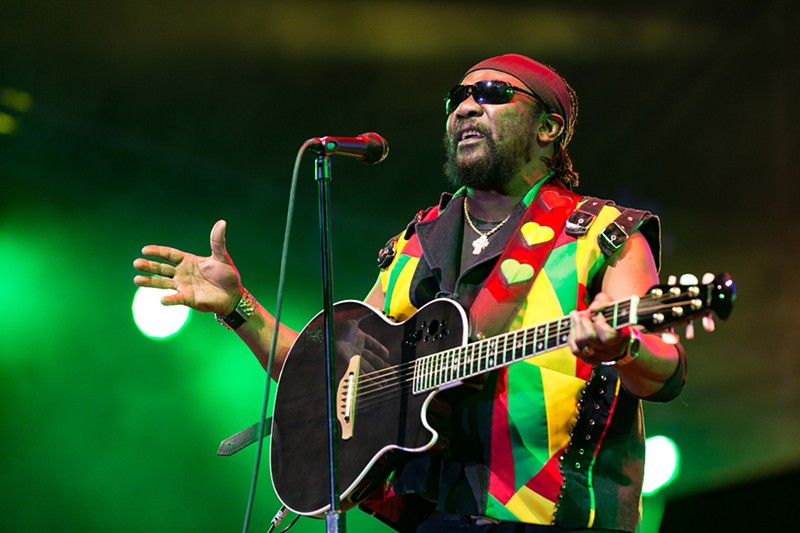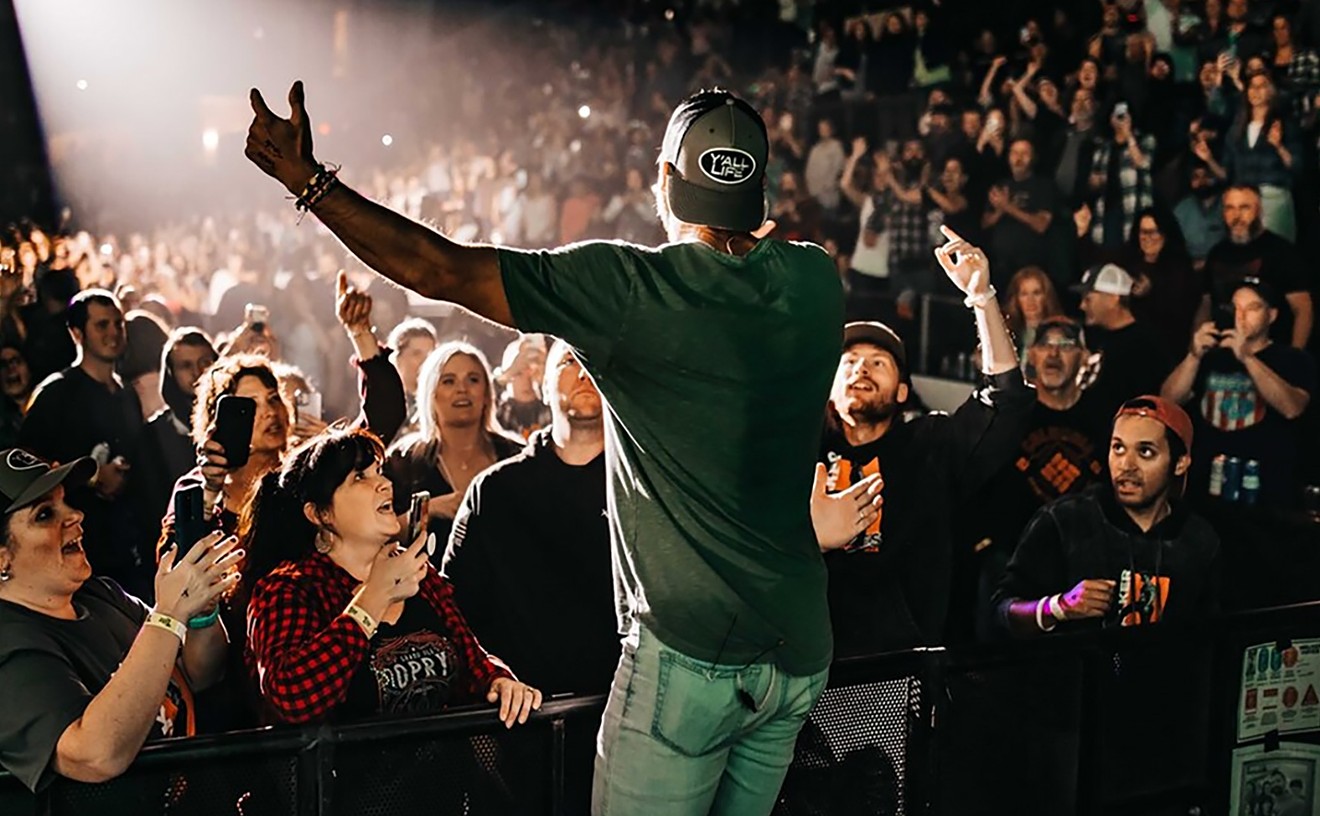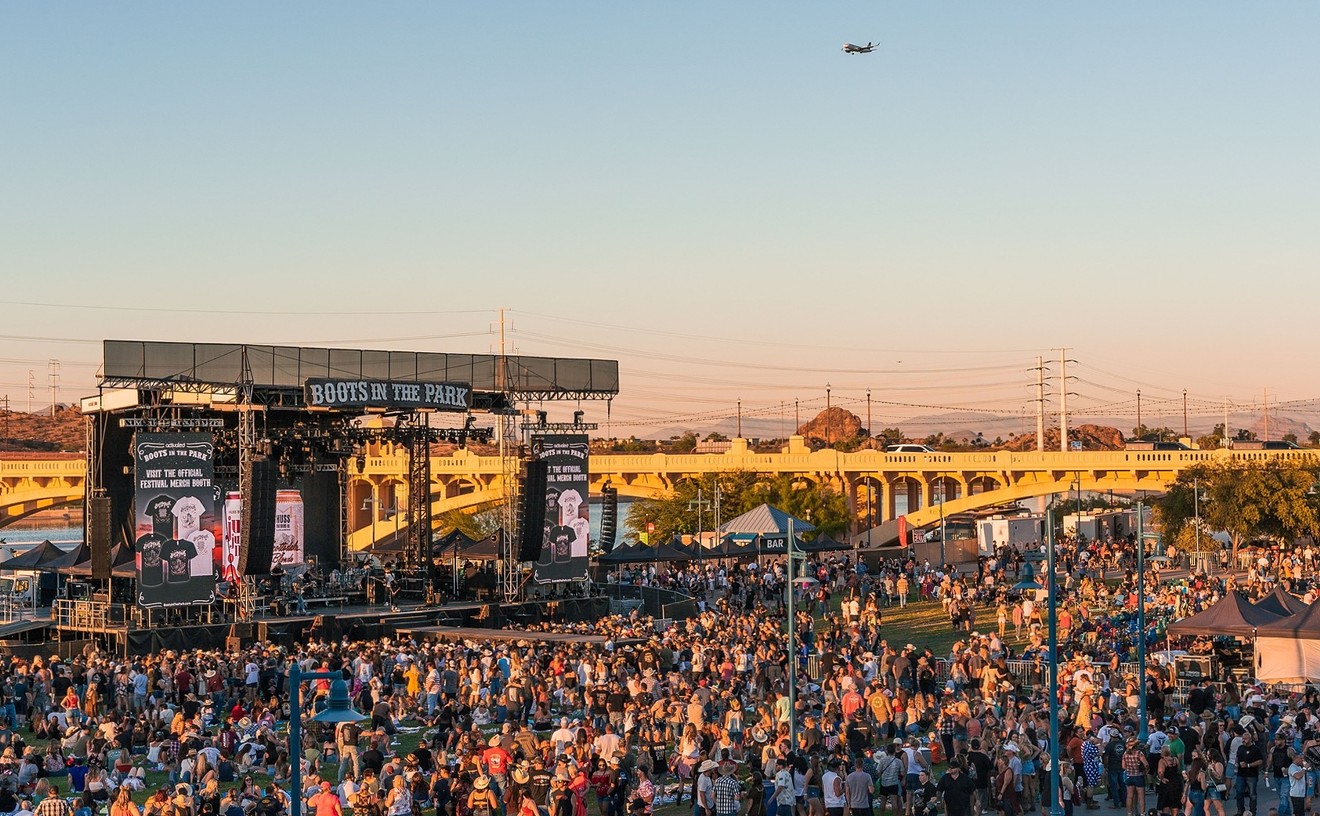Back in late-'60s Jamaica, the syncopated sound of early-day ska and rocksteady gave birth to the slower, more rhythm-based genre of reggae. Thanks to Bob Marley, the genre’s shooting star whose light went out too soon, the genre became a global sensation. But before, during, and after Marley, there was Toots Hibbert, who coined the genre’s name with his 1968 song “Do the Reggay.”
More than a half century later, Toots and The Maytals are still kicking it with new recordings and live shows. Just last year, Toots debuted “A Song Called Marley,” written in honor of the legend, on The Tonight Show Starring Jimmy Fallon. He can also be heard on the newly released Trojan Records compilation Red, Gold, Green, and Blue covering Fleetwood Mac’s “Man of the World."
Hibbert, 77 or 75 (depending on whom you ask), might as well be 25, with the positive vibe and energy he is known to spread on stage.
Frederick "Toots" Hibbert was raised in Jamaica’s rural Clarendon Parish, the youngest of seven children. He grew up singing gospel in church, before moving to Kingston as a teen and forming The Maytals with Henry “Raleigh” Gordon and Nathaniel “Jerry” Mathias in 1962. By 1966, they had risen rapidly in popularity, winning the first-ever Jamaican Independence Festival Popular Song Competition with “Bam Bam.”
The group’s fortunes would turn briefly when Hibbert controversially was arrested for marijuana possession. His 18-month jail stint would inspire the band’s next hit, “54-46 (That’s My Number),” the first in a line of songs – including their first international hit, 1971’s “Monkey Man” – that were drawn from real-life experiences. Many are now considered Jamaican classics.
In 1972, with Hibbert’s star on the rise, the group changed their name from The Maytals to Toots and The Maytals at the behest of legendary Island Records producer Chris Blackwell. Jackie Jackson, Hux Brown, Radcliffe “Dougie” Bryan, and Paul Douglas joined the founding trio as an all-star backing band. From there, they appeared on the soundtrack to the 1972 reggae movie The Harder They Come, which gave breakthrough exposure to stars like Hibbert, Desmond Dekker, and Jimmy Cliff, the movie’s lead actor. Other hit albums would include '70s R&B crossovers Funky Kingston and Reggae Got Soul.
The legend of Toots and The Maytals has continued to grow into the 21st century. In 2004, Bonnie Raitt, Willie Nelson, Eric Clapton, Keith Richards, No Doubt, The Roots, and others helped Hibbert gain a Grammy Award for Best Reggae Album with True Love. The group currently holds the Jamaican record for No. 1 hits — a staggering 31 songs.
Phoenix New Times caught up with Hibbert to talk about the joy of audience connections, new recordings, Bob Marley, and a needed revival of humility within reggae.
Phoenix New Times: After more than 50 years of touring and live shows, how do you make it fun for yourself?
Toots Hibbert: We revere my audience, and I always try to give everyone an equal share. Everyone is so happy; I am happy. We sing together, we make moves, we dance together, we shake hands, we love each other; that’s what keeps me going.
Your recordings and live shows have a spirituality to them. What set the tone for your love of gospel music?
I went to church when I was a youth with my parents, you know. I grew up in church. We did Sunday school. It is the right way of praising God. Some people call him Jesus. I call him God, and in Rastafarianism, they call him Jah.
You were raised in the rural country of Clarendon. How did that differ from if you had been raised in the city?
I grew up in the country with respect (for others). We have so many manners. In the country, we are very spiritual. Whether you are black or you are white, people have respect for you in the country. That’s why I am the way I am.
You grew up on Ray Charles, James Brown, Otis Redding, Mahalia Jackson, Elvis Presley, among others. What inspired you about them, and where did your trademark raspy, soulful delivery come from?
They were great people. They impressed me and gave me a good feeling. My singing – it came natural to me. I don’t sing just one tune (style), I can sing many tunes. I can sing country, I can do reggae, I do blues, I do jazz. I have the voice, I can do it.
Imitation is the sincerest form of flattery. In 1979 The Specials covered “Monkey Man” and in 1980, The Clash covered “Pressure Drop.” What did that mean to you?
It was a surprise. It was a good surprise. Songs that take me months and months to work, and then people gravitate to them. It was very good for me, for what I do. It’s a good thing.
You have stated many times that you and Bob Marley were friends and not adversaries. Last year, you released “A Song Called Marley” in his honor. What inspired that creation?
I wanted to sing something about him. He and Bunny Wailer and Peter Tosh, we were all good friends. They like the dreads, and I don’t like the dreads. I just wanted to sing something about him; we are great friends and brethren, just the same.
Just as Bob has had some great musical offspring, so have you with Leba, Toots Junior, Hopeton, and grandsons DJ Blizzard and King Trevy. What showbiz lessons do share with them, and what has your wife Doreen’s steadfast support meant to you?
I tell them to love music, love God, love the people they meet and to love themselves and to love their brothers and sisters, and to sing like an angel. [Doreen] is always by my side.
Reggae music has evolved over the past 50 years, with more emphasis on being tough and dangerous. How has the music and its performers changed, and where do you see it going?
The young generations don’t gravitate to it properly. When you sing it like we sang it, it gives you memories about suffering, hard times in life, good life, good love, great love, loving each other. It’s different. It’s stories, and the stories are true. The young generations need to listen more attentively.
Toots and The Maytals. 7 p.m. Thursday, July 18, at the Marquee Theatre, 730 North Mill Avenue, Tempe. marqueetheatreaz.com. Tickets are $33 to $63 via Ticketweb.

Audio By Carbonatix
[
{
"name": "Air - MediumRectangle - Inline Content - Mobile Display Size",
"component": "18478561",
"insertPoint": "2",
"requiredCountToDisplay": "2",
"watchElement": ".fdn-content-body",
"astAdList": [
{
"adType": "rectangle",
"displayTargets": "mobile"
}
]
},{
"name": "Editor Picks",
"component": "16759093",
"insertPoint": "4",
"requiredCountToDisplay": "1",
"watchElement": ".fdn-content-body",
"astAdList": [
{
"adType": "rectangleLeft",
"displayTargets": "desktop|tablet"
},{
"adType": "rectangleRight",
"displayTargets": "desktop|tablet|mobile"
}
]
},{
"name": "Inline Links",
"component": "17980324",
"insertPoint": "8th",
"startingPoint": 8,
"requiredCountToDisplay": "7",
"maxInsertions": 25
},{
"name": "Air - MediumRectangle - Combo - Inline Content",
"component": "16759092",
"insertPoint": "8th",
"startingPoint": 8,
"requiredCountToDisplay": "7",
"maxInsertions": 25,
"watchElement": ".fdn-content-body",
"astAdList": [
{
"adType": "rectangleLeft",
"displayTargets": "desktop|tablet"
},{
"adType": "rectangleRight",
"displayTargets": "desktop|tablet|mobile"
}
]
},{
"name": "Inline Links",
"component": "17980324",
"insertPoint": "8th",
"startingPoint": 12,
"requiredCountToDisplay": "11",
"maxInsertions": 24
},{
"name": "Air - Leaderboard Tower - Combo - Inline Content",
"component": "16759094",
"insertPoint": "8th",
"startingPoint": 12,
"requiredCountToDisplay": "11",
"maxInsertions": 24,
"watchElement": ".fdn-content-body",
"astAdList": [
{
"adType": "leaderboardInlineContent",
"displayTargets": "desktop|tablet"
},{
"adType": "tower",
"displayTargets": "mobile"
}
]
}
]











